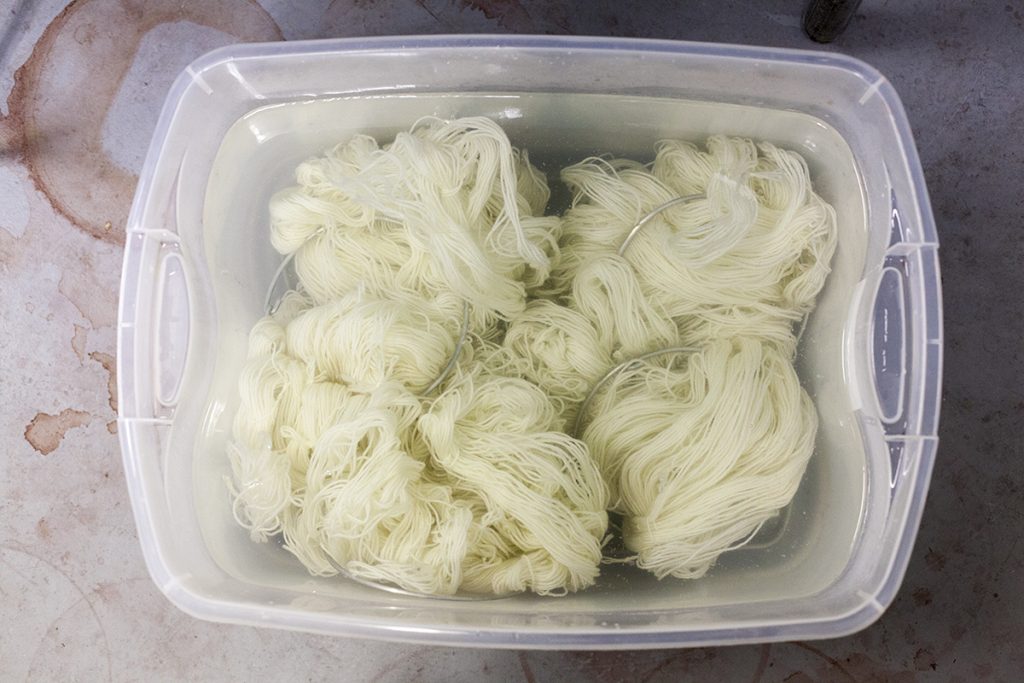
Each week, we are emailed with questions from our natural dye community asking simple and complex questions that we thought might be worth sharing. Here are a handful from this week answered by natural dyer in chief, Kathy Hattori, Founder of Botanical Colors:
When do I know when I should stop rinsing my yarn after dyeing?
If the fibers seem to be bleeding excessive amounts of dye while you are rinsing, stop and let the freshly dyed fibers air dry completely. Once the fibers are dry, then rinse and air dry.

It seems like there’s a still a little color in my dye bath-is it worth trying to use up all the color I can?
Any exhaust baths with dye color left in them may be used to dye additional materials. I keep extra small skeins of mordanted wool yarn and throw those into the exhaust baths. There will usually be some residual color in the dyebath, even after using the exhaust bath. Dispose of the used dye baths in accordance with your local municipal guidelines.
I am teaching a fibers class and we are doing indigo shibori, and i am having some difficulties with the vat that I have never seen before. I made a 1-2-3 vat and the color is very pale. I added ore stock and there was no change in value. Subsequent dips do not darken the color. Adding fructose and lime does not fix it. I did overheat the vat to 150 degrees accidentally this morning – could that throw everything off?
What is the best mordant to use with wool?
I like using Aluminum Sulfate with optional Cream of Tartar.
